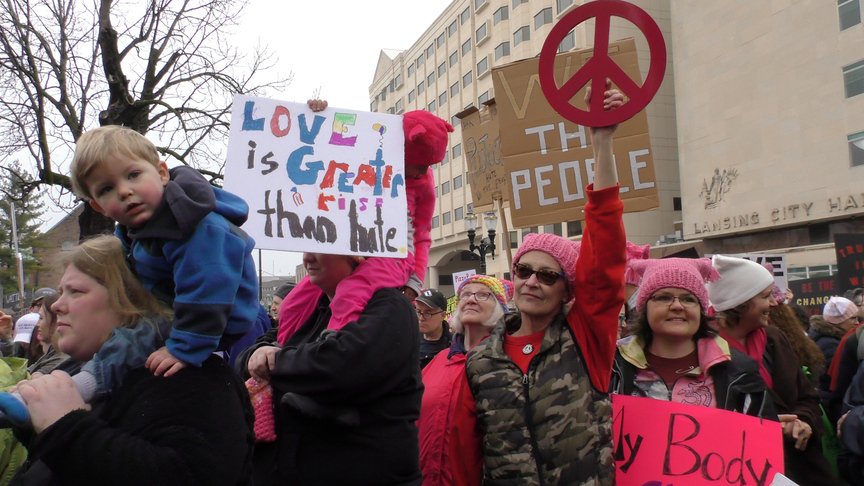Over the last few years, I’ve discovered my passion for visual storytelling and have experimented with videography. Out of what felt like no where, I learned how to film, use professional editing software, record and edit audio, and craft stories through video. Though my work is amateur (I did most of my filming on my Canon T5i), I’ve found that films are the most compelling and impactful modes of storytelling—and I am eager to explore deeper into this medium.
For my first attempt at filmmaking, I worked in a group with two other women to create a promotional video for a local coffee house, Bloom Coffee Roasters. Our task was to highlight the growing business and their roots, and to encourage members of the Greater Lansing Community (especially Michigan State students) to visit the shop.
In this role, I worked as both a producer and a director. I assisted the team with actual filming, placing cameras, microphones, etc. My vision for this short video was strong, and I took on the task of editing our footage in its entirety.
I recognize the video as amateur, but I also recognize its potential! As my first ever “film”, I’m satisfied with the finished product.
My second attempt at filmmaking took on a much larger meaning than I could have ever imagined. In a group with two other women, we made a short, amateur documentary to highlight America’s 2016 presidential election on the Michigan State University campus. Our goal was to incorporate voices from students and faculty, particularly those belonging to marginalized groups, to provide a platform for their ideas and stories to be heard. We attended rallies, interviewed students, and together analyzed the political environment on campus at that time.
This film is not without its technical imperfections; the story itself, however, is clear in its message and intent. For this documentary, I contributed by filming and interviewing subjects, drafting a storyboard, and compiling all of the footage into a short, impactful film. I worked with Adobe Premiere Pro to draw this footage together into a strong story, with a clear juxtaposition of the hurting community and this brutish election.
*This film is incomplete, in spec state
My most significant experience with filmmaking was through the creation of a short documentary, Post-Election Women. This film features the voices of four powerful women and their individual experiences as women following America’s 2016 presidential election. The video you see here incorporates significant moments and dialogues from our interviewees. These clips are lightly edited, but do not contain any B-Roll or much creative addition; instead, the footage in this video is meant to showcase the direction of the film based on the content of the interviews.
Working on this project with my colleague Sarah Mitchell, we highlighted women’s voices in the Greater Lansing Area by interviewing (in order of appearance) MSU Professor Kate Birdsall, an undergraduate MSU student, Grand Valley State University Professor Davia Downey, and Gretchen Whitmer, Michigan State Senator and 2018 candidate for Governor.
Though I am labeled the film’s Producer, Sarah and I shared duties of both producers and directors throughout the film’s creation. Together, we filmed the interviewees, recorded audio and b-roll footage, and developed the film’s storyline. For this draft, I personally cut and edited the interview footage together to establish the film’s voice and message. This video does not encompass all of the interview footage, nor is it a complete documentary—still, this video showcases the importance of women and their experiences throughout this difficult, divided time in America.
I hope one day to complete this documentary, and potentially work with the interviewees to create a follow-up film highlighting their experiences a few years into this presidency.
If you haven’t already noticed the pattern, I found a great interest in covering political experiences through film—specifically surrounding the 2016 presidential election. I was grateful to attend the Women’s March on Lansing in January 2017, and filmed speakers, attendees, and the beautiful signs carried by all. I filmed and interviewed multiple attendees from around the state, and though they did not make it into this documentary, the experience was enlightening and unlike any other.
This film was created by my one of my favorite professors at MSU and award-winning filmmaker, Alexandra Hidalgo. The film, titled A Place at the Table, captures the experience of various attendees through their dialogue, while visually showcasing the March. My role in this project is as a cinematographer, as my footage from the March was used throughout the film.
Please click on the image to the left or the link below to visit the website on which the film is hosted: publicphilosophyjournal.org.
